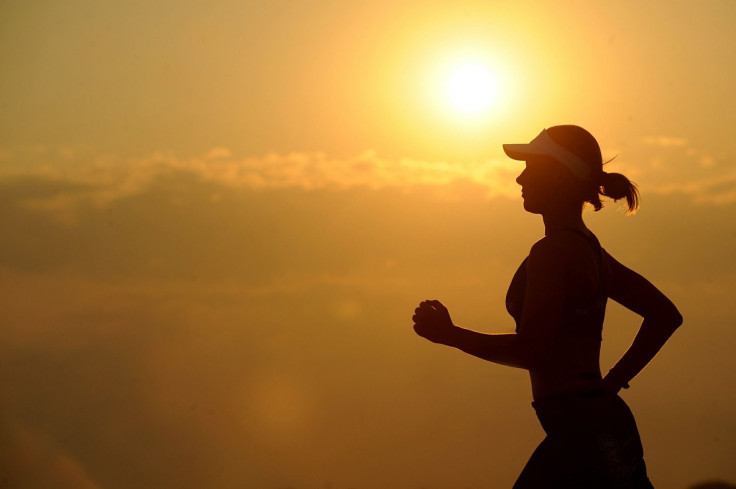Why Sunshine And Exercise Might Be The Best Way To Ward Off Heart Attacks

Taking a walk in the sun could be all you need to give your heart a healthy boost. Researchers from Johns Hopkins found that a combination of vitamin D and exercise was linked to fewer heart attacks and strokes.
Previous research has indicated that vitamin D consumption and exercise alone could help lower your risk for heart disease. But this new study, which does not show cause and effect, looked at how together the two impacted heart health. After analyzing health records for more than 10,000 Americans over the course of 20 years, the team found that exercising is associated with increased vitamin D levels in the body. Not only that, but the two appear to provide more heart protection when working together.
"In our study, both failure to meet the recommended physical activity levels and having vitamin D deficiency were very common," says Erin Michos, M.D., M.H.S., and study co-author, in a statement. "The bottom line is we need to encourage people to move more in the name of heart health."
Researchers used data from the federally funded Atherosclerosis Risk in Communities study, which included 10,342 participants who didn’t initially report heart or vascular disease. Subjects documented exercise, and their vitamin D levels were measured through blood tests. People who were more active had higher amounts of the nutrient, showing a positive correlation between the two, but it's unknown whether it's due to helathier diets, supplements, or an actual change caused by fitness. This correlation was only found in white participants and not African Americans.
Next, scientists looked at the occurrence of cardiac events like heart attack or stroke over the span of 19 years. Those who met the daily recommended activity and vitamin D levels had a 23 percent less chance of heart problems than those who didn’t. Further, people who exercised but were deficient in vitamin D did not have a lower risk, indicating that the two work better together.
Before you load up on the supplements, Michos says there are more natural ways to get the vitamin.
Read: What Is Carb Cycling? Popular Diet Helps With Weight Loss And Plateaus
"More isn't necessarily better once your blood levels are above 20 nanograms per milliliter," Michos says in the statement. "People at risk of bone diseases, have seasonal depression, or are obese should have their physicians measure vitamin D levels to ensure they're adequate, but for many, the best way to ensure adequate blood levels of the vitamin is from sun exposure, healthy diet, being active and maintaining a normal body weight."
To ensure you’re getting enough of the nutrient, Health advises eating plenty of fatty fish, fortified milk and egg yolks.
Source: Kathleen Chin et al, Physical Activity, Vitamin D, and Incident Atherosclerotic Cardiovascular Disease in Whites and Blacks: The ARIC Study, The Journal of Clinical Endocrinology & Metabolism (2017)
See Also:
Foods With Soy Protein May Help Treat Symptoms Of Irritable Bowel Syndrome
The Earth Day 2017 Diet: How To Eat Environmentally Friendly Foods



























